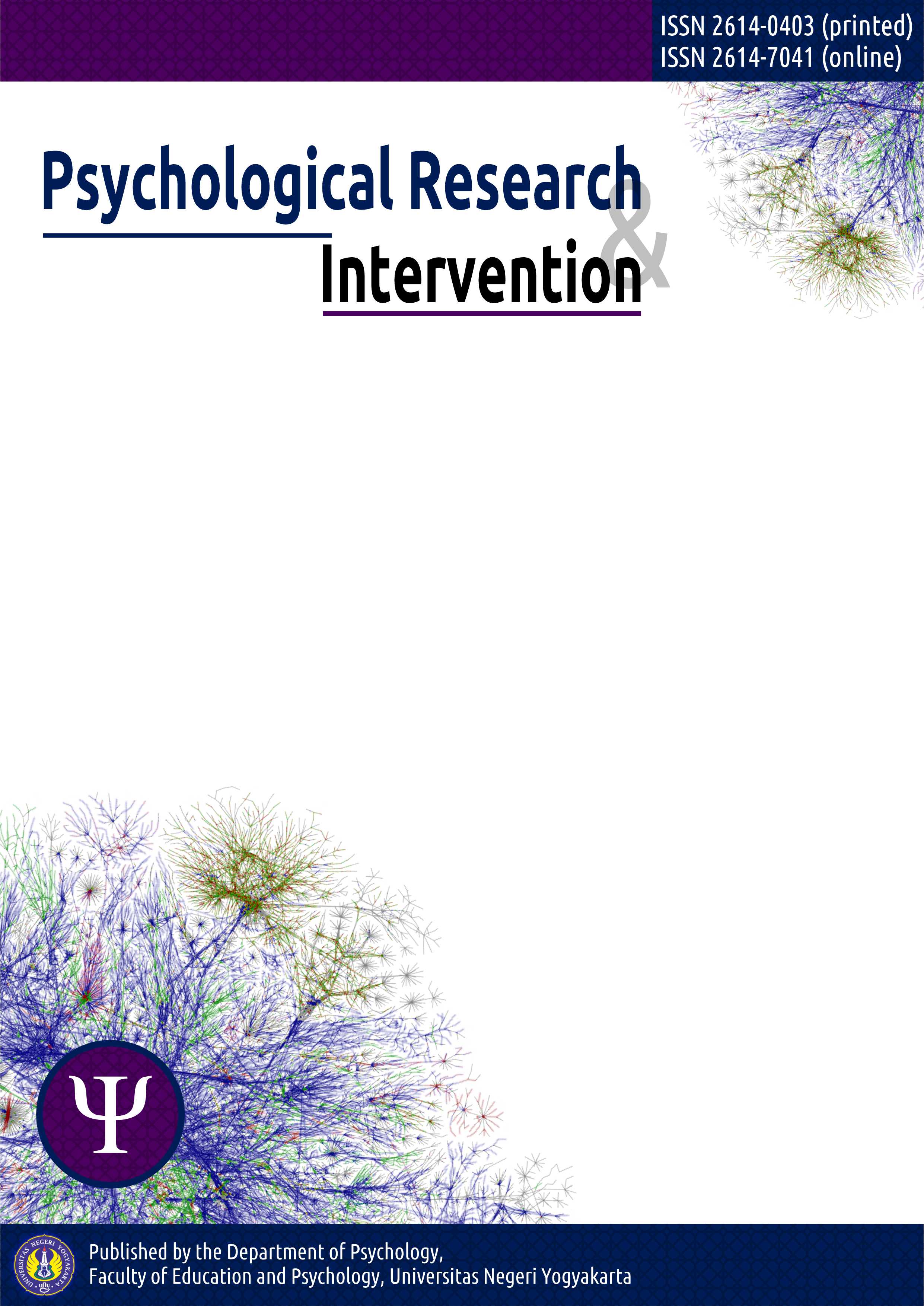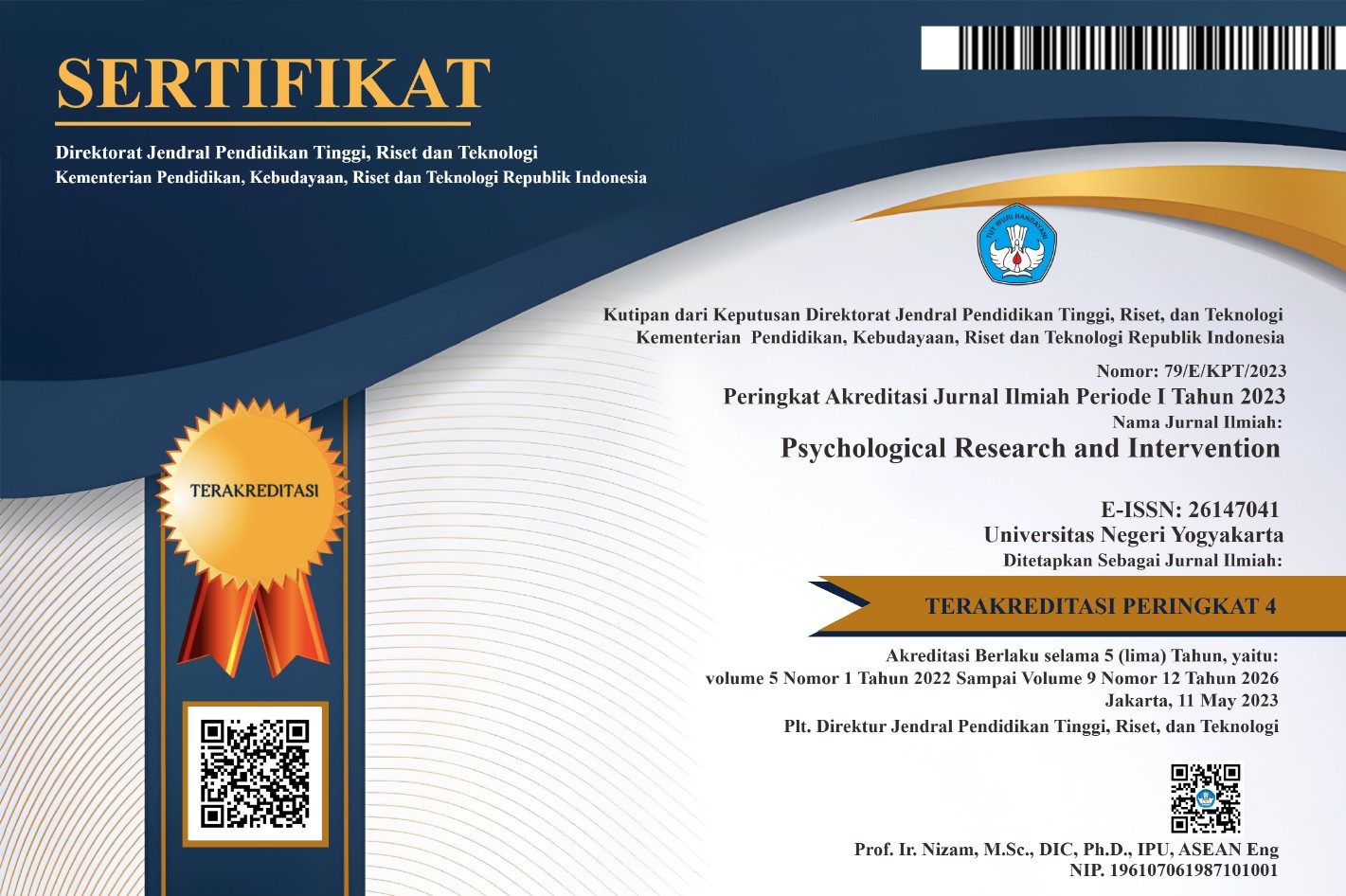Depression among individuals with disabilities in Indonesia: The impact of demographic factors and bullying experience
DOI:
https://doi.org/10.21831/pri.v7i1.76699Keywords:
depression, disabilities, bullying experienceAbstract
Depression represents a significant mental health concern among individuals with disabilities, with demographic factors and experiences of bullying often serving to exacerbate this issue. The aims of this study are to investigates the prevalence of depression among disabilities in Indonesia and examines the impact of various variables on depressive conditions. A quantitative research design was employed in this study, which used an online survey to gather data from 139 participants with multiple disabilities, physical, hearing, and visual impairment. The results demonstrated that 38.1% of participants exhibited symptoms of mild depression, 21.6% displayed indications of moderate depression, 20.9% demonstrated symptoms of moderately severe depression, 16.5% reported no depressive symptoms, and 2.9% were affected by severe depression. The regression analysis identified several significant predictors of depression. These included sex (β=−2.6905, p = 0.004), educational level (β=−1.4470, p < 0.001), monthly income (β=1.1039, p = 0.023), and experience of bullying (β=2.3073, p = 0.015).












